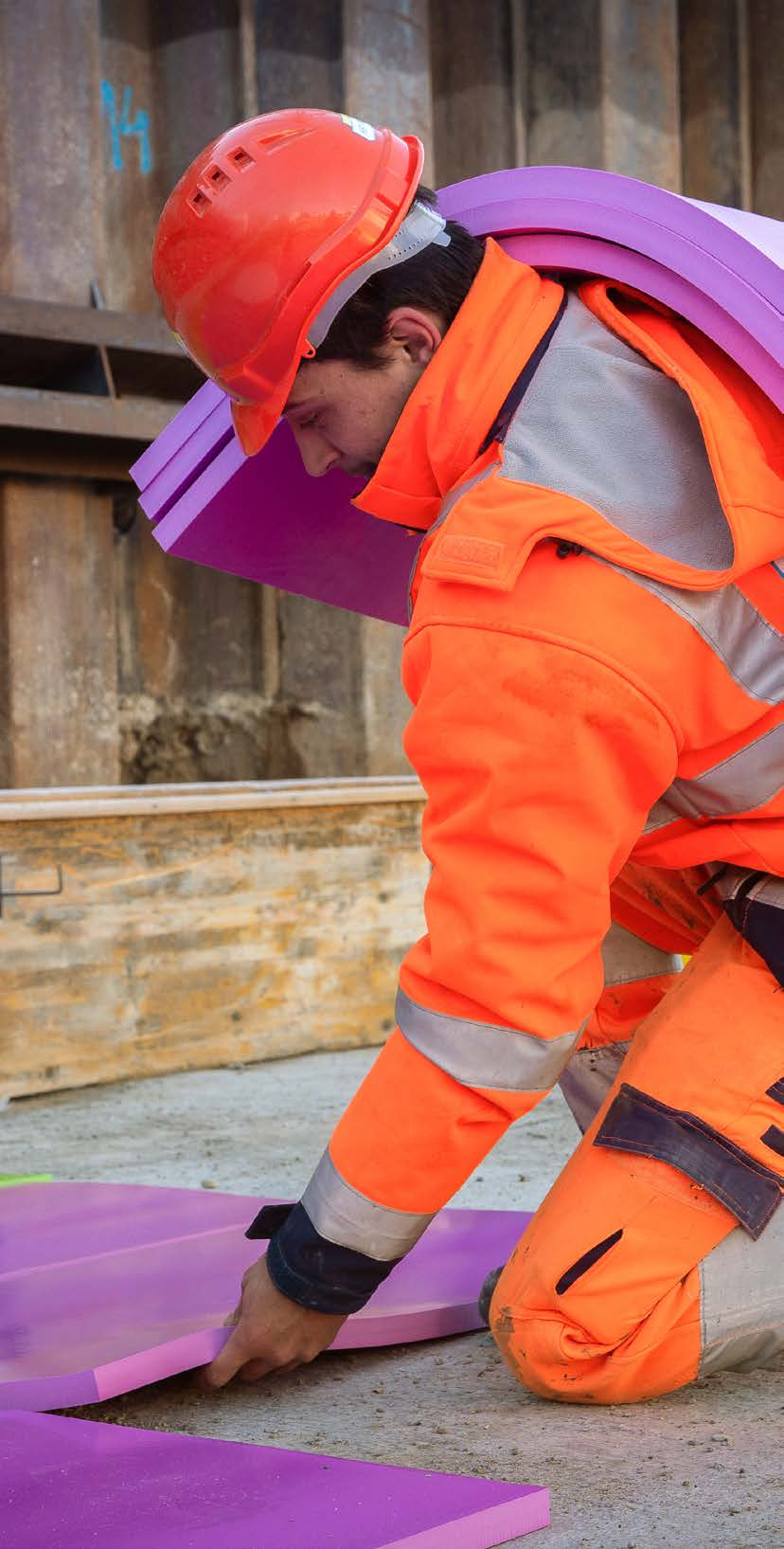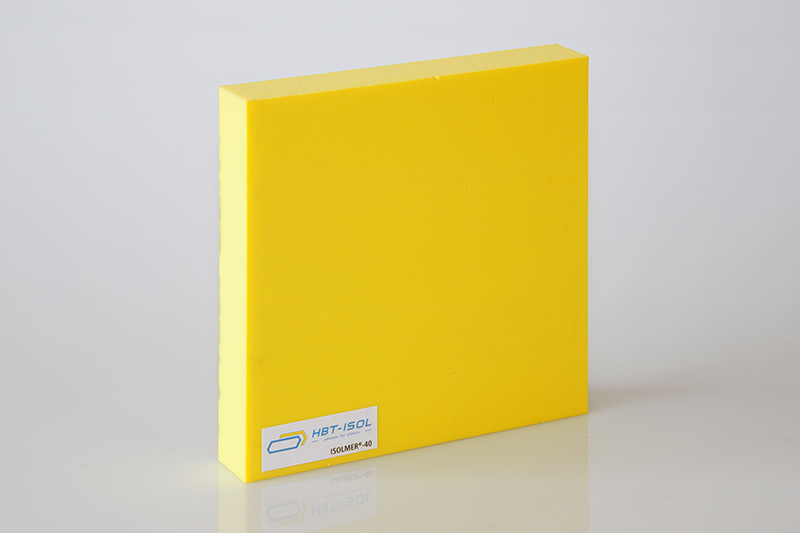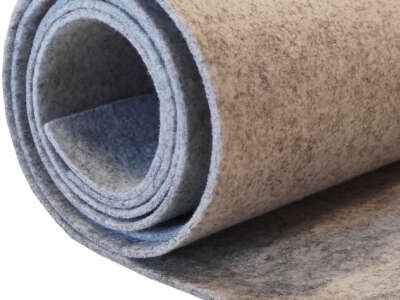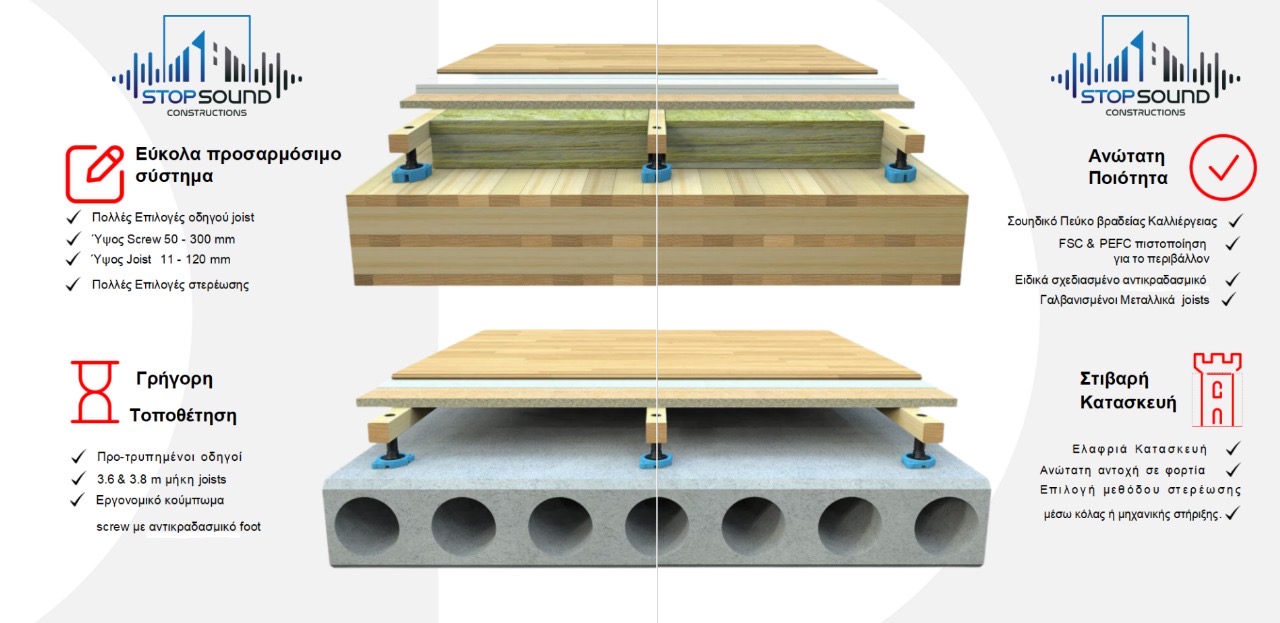Floor Soundproofing – Complete Guide & Certified Solutions
Introduction
Floor soundproofing is essential for protecting against impact noises (footsteps, knocks, falling objects) as well as vibrations transmitted through the structure. In apartment buildings, hotels, recording studios, or commercial spaces, proper sound insulation ensures:
✔️ Comfort & privacy for users
✔️ Compliance with regulations and specifications
✔️ Prevention of complaints & technical failures
Stop Sound Constructions provides certified floor soundproofing systems with lab-tested and real-project verified results.
Types of Floor Soundproofing
1. Floating Screed Floors
The most common and effective solution for demanding projects.
- Installation of a floating concrete screed on a vibration isolation underlay
- Excellent isolation at low frequencies
- High load resistance and mechanical stability
- Compatible with underfloor heating systems
Materials we use:
- ISOLMER® & ISOLDYN® (mixed-cell polyurethane)
- Recycled rubber underlays
- Closed-cell polyethylene
- Composite multilayer systems
|
|
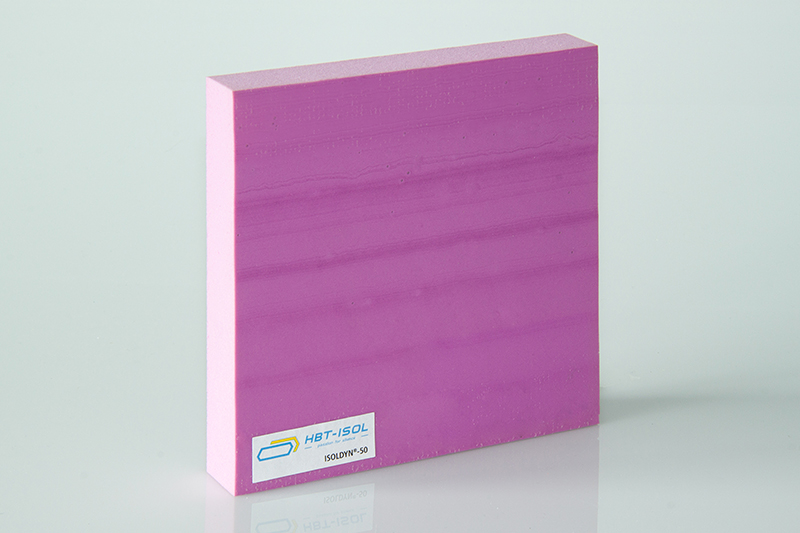 |
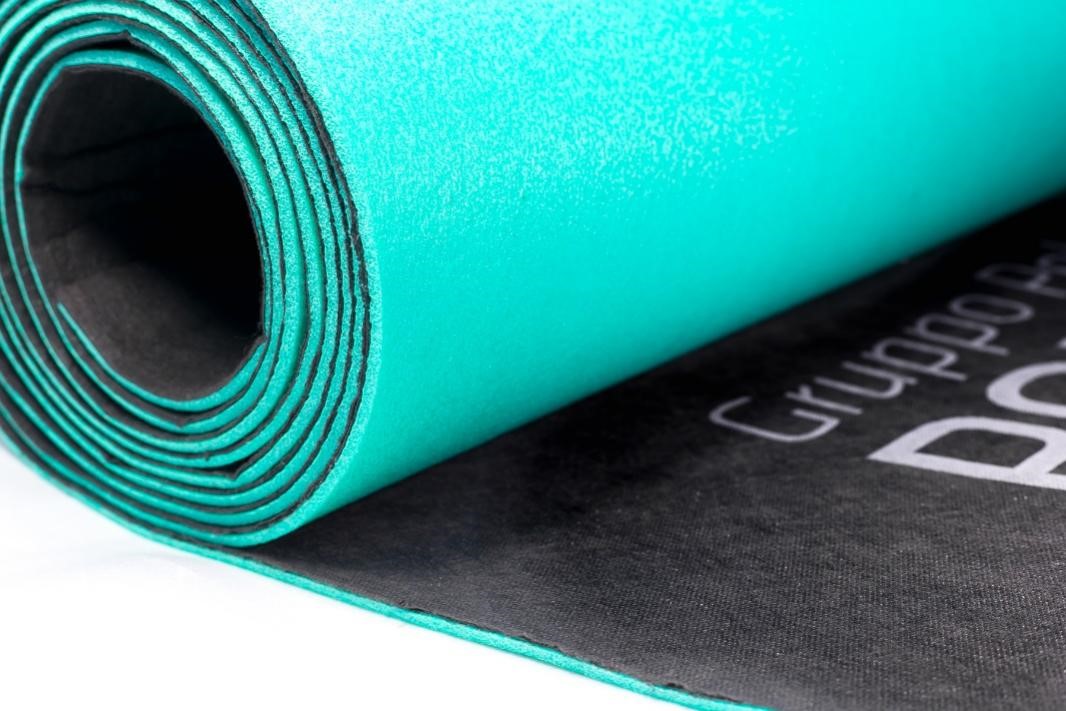 |
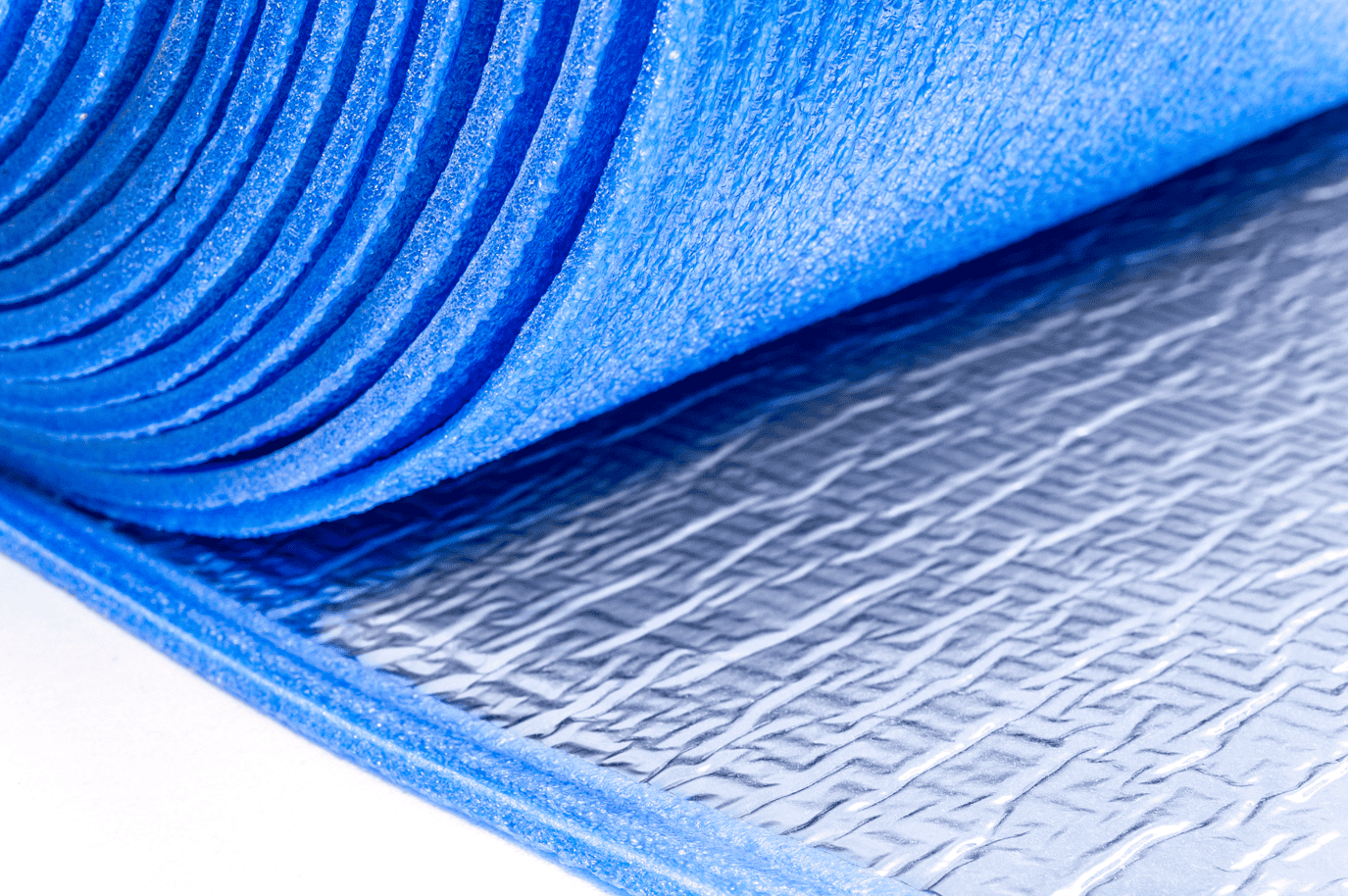 |
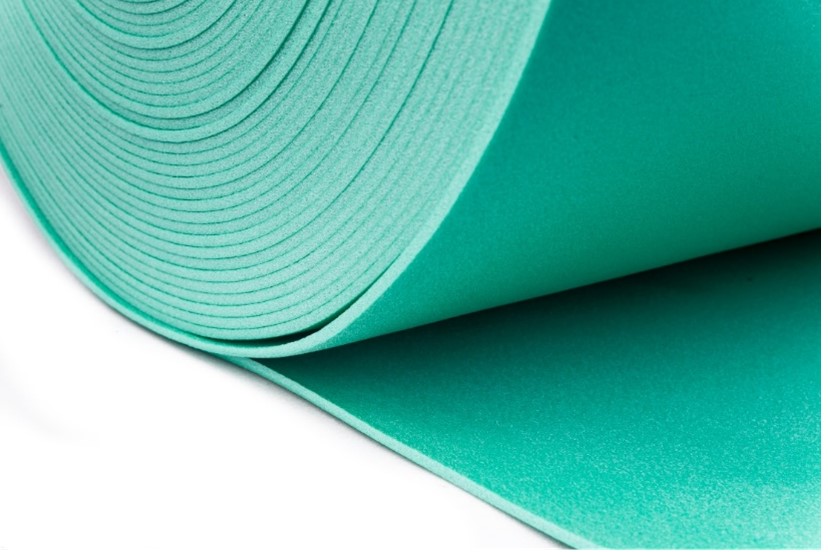 |
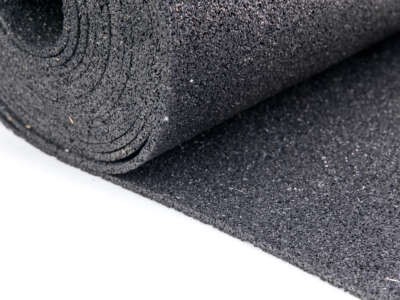 |
2. Anti-vibration Underlays for Laminate & Wooden Floors
GreenPlatt is an ideal solution for residential and hotel applications with laminate or pre-finished wooden flooring.
- Thickness 2–5 mm with certified acoustic performance
- Resistance to moisture and wear
- Can be combined with Viscolam® soundproof membranes to increase mass and enhance airborne sound insulation
3. Raised Floors FLS (SubFloor)
A top-choice solution for projects with high functional requirements.
🔧 Easy and fast installation
📦 Concealed space for cables and technical infrastructure
🔇 Combination of sound and thermal insulation
🏗️ Ideal for offices, hotels, schools, and renovation projects
4. Floating Floors – FLOOR BLOCKS Type
A specialized system designed for studios and recording rooms.
- Project-based design
- High performance in impact noise reduction
- Complete acoustic isolation
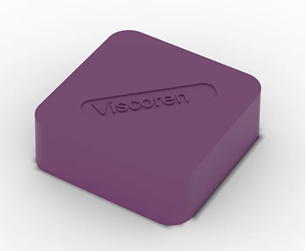 |
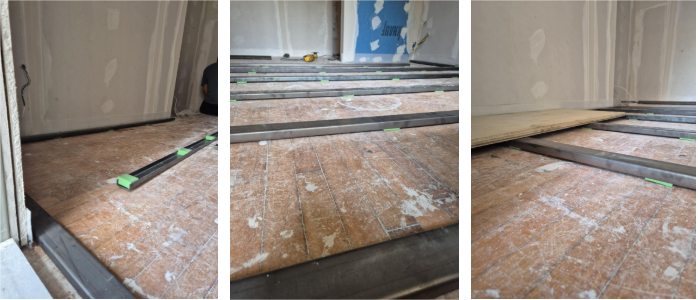 |
5. Perimetric Decoupling & Sound Bridge Prevention
No soundproofing system performs effectively without proper perimetric decoupling.
With products such as:
- Superfascia AD®
- ISOLMER®
we ensure complete separation of structural elements, eliminating sound bridges that reduce the system’s overall acoustic performance.
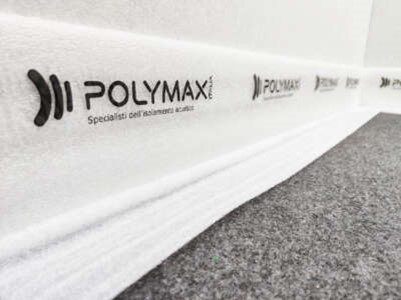 |
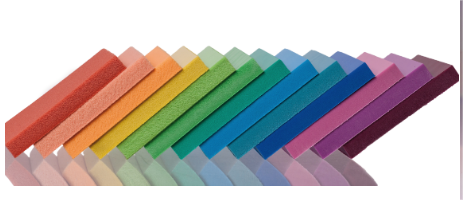 |
Common Mistakes in Floor Soundproofing
- Using only a thin underlay without a membrane or decoupling layer
- Discontinuous installation of perimeter tape → formation of sound bridges
- Incorrect material selection in areas with high loads
Stop Sound Case Studies
🏨 5-star Hotel in Athens: installation of floating screed with ISOLMER® → impact noise reduction > 28 dB
🎙️ Recording Studio: use of FLOOR BLOCKS system → complete acoustic isolation
🏠 Apartment Residence: laminate underlay with Viscolam® → elimination of neighbor noise complaints
Frequently Asked Questions (FAQ)
Q: How many dB can floor soundproofing reduce?
A: A certified floating floor system can reduce impact noise by more than 35 dB.
Q: What is the cost?
A: The cost depends on the floor type, underlay, and project requirements. There are economical to premium solutions available.
Q: Can it be applied in renovations?
A: Yes. With thin underlays and Viscolam® membranes, sound insulation can be significantly improved without major structural interventions.
Conclusion
Floor soundproofing is essential for any space that demands comfort, safety, and functionality.
With the certified systems of Stop Sound Constructions and the products Polymax®, Viscolam®, ISOLMER®, and FLS SubFloor, you achieve:
✔️ Measured noise reduction
✔️ Technical reliability
✔️ Guaranteed results
👉 Contact us to design the optimal floor soundproofing solution for your project.


